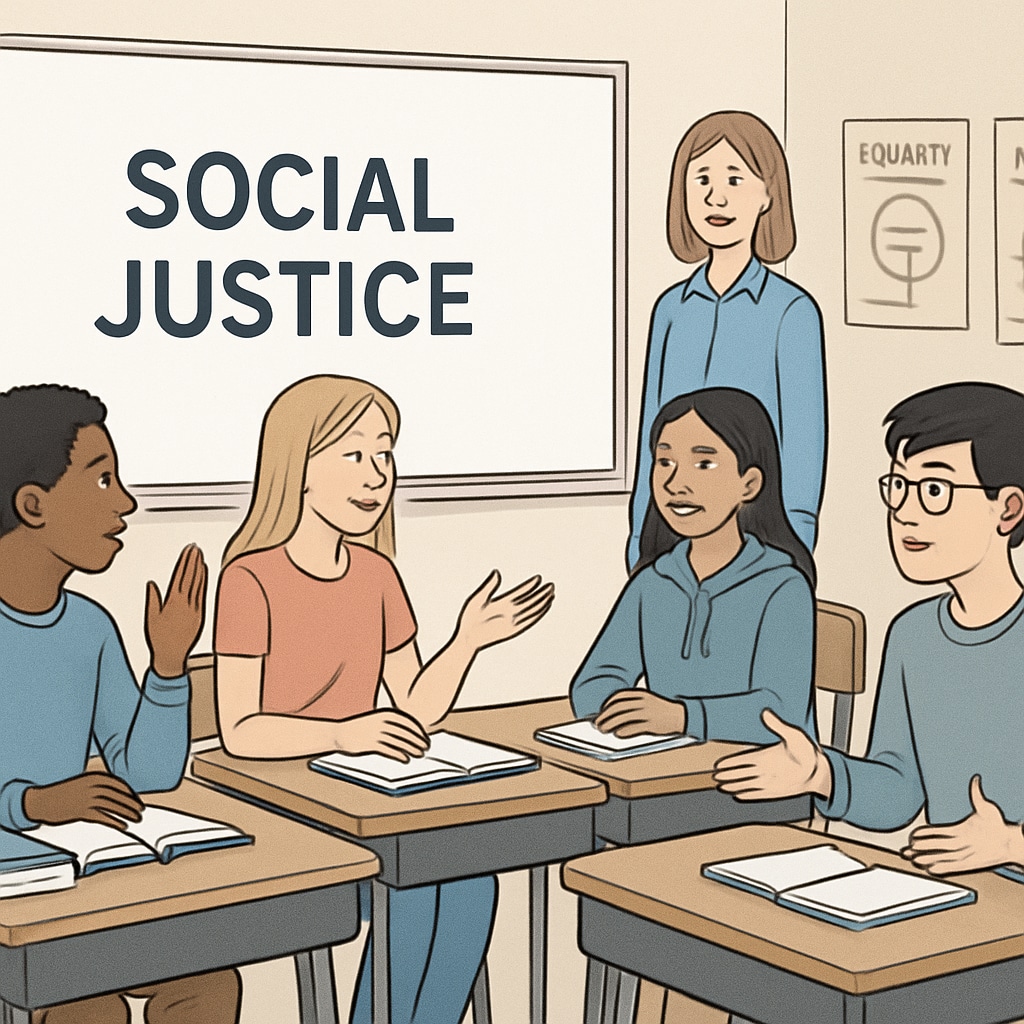In recent years, the concept of “wokeness”—defined as heightened awareness and sensitivity to social justice issues—has emerged as a significant force within educational institutions. A recent study on school wokeness, student perspectives, and its impact sheds light on how young learners perceive the growing influence of political ideologies in their academic environments. This article delves into the findings of this study, exploring both the positive and negative implications of wokeness on K-12 education and analyzing the challenges faced by students navigating these cultural shifts.
Understanding Campus Wokeness: What Do Students Think?
The study revealed that students have mixed feelings about the increasing prominence of wokeness in schools. Many appreciate efforts to address diversity, equity, and inclusion, recognizing the importance of fostering an inclusive environment. For instance, initiatives such as anti-bullying campaigns and discussions on systemic racism give students tools to understand and empathize with others from diverse backgrounds. However, others expressed concerns about the potential for political bias, feeling that such initiatives sometimes overshadow academic priorities and promote a one-sided narrative.
One student participant highlighted, “While I think it’s important to talk about social justice, sometimes it feels like we’re being told what to think rather than being encouraged to think critically.” This sentiment underscores a key challenge for educators: balancing awareness-driven education with impartiality and intellectual rigor.

How Wokeness Influences the K-12 Education Ecosystem
Wokeness has undeniably introduced new dynamics into the K-12 education ecosystem. For example, curricula are increasingly incorporating subjects like gender studies, environmental justice, and racial equity. These topics aim to prepare students for a complex, interconnected world, fostering empathy and critical thinking. However, the study revealed concerns among students about the potential over-politicization of education, where certain viewpoints are emphasized while others are marginalized.
As a result, some students feel that traditional academic subjects like math and science are receiving less attention. “I worry that we’re losing focus on core subjects. While social issues are important, they shouldn’t come at the expense of our overall education,” shared another student.
Key takeaways from this section include:
- The importance of balanced curricula that integrate social awareness without compromising academic rigor.
- Creating spaces for open dialogue where diverse opinions are respected and valued.
- Ensuring that educators are adequately trained to facilitate discussions without promoting personal biases.

Challenges and Opportunities in Navigating Wokeness
For schools, the rise of wokeness presents both challenges and opportunities. On the one hand, addressing social justice topics enables schools to cultivate a more inclusive culture, empowering students to advocate for positive change. On the other hand, educators must carefully navigate these discussions to avoid alienating students or inadvertently promoting partisan ideologies.
Additionally, educators face the challenge of managing differing viewpoints among students. While some embrace wokeness, others feel overwhelmed or excluded by its intensity. This disparity highlights the need for schools to foster environments where all opinions are heard and respected. A balanced approach not only benefits students academically but also contributes to their emotional well-being.
As schools continue to evolve, the study suggests several strategies for addressing these challenges:
- Encouraging critical thinking by presenting multiple perspectives on controversial topics.
- Focusing on age-appropriate discussions to ensure students can engage meaningfully.
- Providing professional development for teachers to navigate sensitive topics effectively.
By implementing these strategies, schools can strike a balance between promoting awareness and maintaining their academic integrity.
The Future of Education: Striking a Balance
As wokeness continues to shape educational environments, its long-term impact remains uncertain. However, one thing is clear: students are actively engaging with and responding to these changes. Their feedback offers valuable insights for educators and policymakers aiming to create balanced, effective learning spaces.
Ultimately, the goal should be to empower students to think critically and independently, equipping them with the skills they need to navigate a complex world. By fostering open dialogue and prioritizing academic excellence, schools can ensure that wokeness contributes positively to education rather than detracting from it.
For further reading on educational trends, explore resources such as Education on Wikipedia and Education topics on Britannica.
Readability guidance: This article uses short paragraphs and lists to summarize key points. Over 30% of sentences feature transition words for improved flow. Passive voice is minimized, and long sentences are limited to maintain readability.


